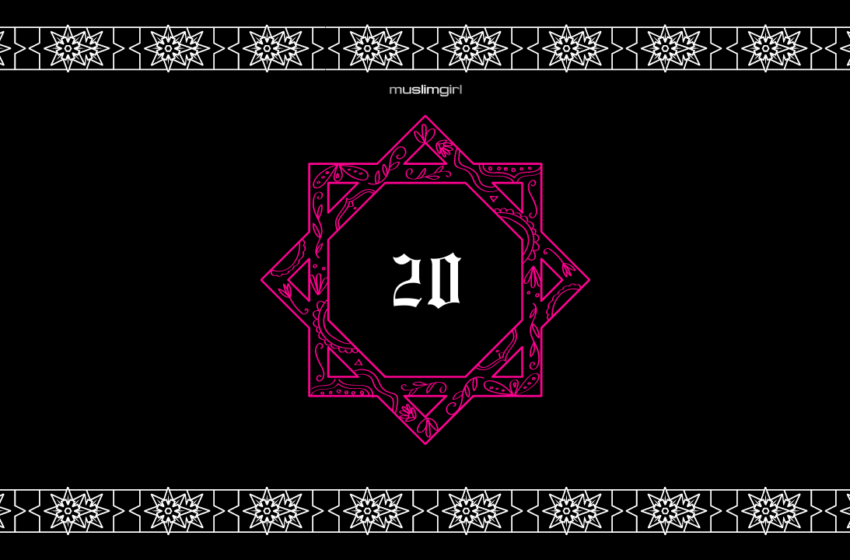
Juz 20 Takeaway: Allah (SWT) Will Not Forsake Those Who Believe
As we enter Juz 20 of the Holy Quran, we continue the holy Book’s conversation on the veils we (humans) create within ourselves to distance ourselves from Allah’s infinite mercy and prevent ourselves from having His love shine on us.
Here are our main reflections for today.
Creations of Allah as evidence of His existence
We see this theme where Allah (SWT) notes that contemplation of the Divine creation is the best way to nearness to their Creator. From the rain that falls from the skies to the garden that very water helps to grow, each is under the observation and command of Allah (SWT).
In the most beautiful and poetic of verses, Allah (SWT) discusses the metaphysical state a person must reside in as they accept the truth. When a person is blinded by arrogance, anger, or stubbornness, it is as if you are asking the dead or the deaf to hear you calling them. Subhanallah.
Verily you cannot make the dead to listen nor can you make the deaf to hear the call when they turn away backward. Nor can you lead the blind against their straying; you can make none hear save those who believe in Our revelations and who have surrendered.
— Quran (27:80-81)
And while this verse discusses the ignorance that the disbeliever experiences, we can use these verses for our own lives. Are we truly open and willing to accept the mercy and truth that Allah (SWT) showers us with each and every day? Do we truly reflect and soak in the word of God and his Messenger? How often are we divided by sect, differing Hadith and leaders to the point that it strips us of the path we are meant to lead?
And when the word (of torment) is fulfilled against them We shall bring forth for them a moving creature from the earth that shall speak unto them, because people did not believe in Our revelations [verses of the Quran and Prophet Muhammad SAW]
— Quran (27:82)
Allah is by your side as long as you remember Him
The next chapter within Juz 20, Surah Al-Qasas, is personally one of my favorite supplications. This chapter in particular discusses the story of Prophet Musa (as) from the time of his birth to adulthood as he garnered the title of prophethood. In particular, the following verse spoke to me as Prophet Musa (as) lay under a tree absolutely defeated and exhausted.
So he watered ˹their herd˺ for them, then withdrew to the shade and prayed, “My Lord! I am truly in ˹desperate˺ need of whatever provision You may have in store for me.”
— Quran (28:24)
The merits of this dua can refer to getting a job, wealth, marriage, food, drink or just about anything good. This verse is is so poignant because of just how beautifully it is posed towards his creator. There are no strings attached nor a command on where his Lord should lead him. In complete submission and desperation, Musa (as) sent supplication knowing that provision only comes from Allah (SWT).
We see a stark difference in both character and theme as we progress to Qarun, the cousin of Musa (as). Despite being given treasures and enjoyment by Allah (SWT), Qarun used those very riches to disobey his Lord. Despite being given countless proofs by his cousin, his arrogance caused him to not see the blessings he was immersed with. In stories like this, we learn a valuable lesson about how Allah (SWT) can test us by also granting us all of the riches and abundance we ask for. But if we gain arrogance and veils over us, how would we recognize the test we are being tried with?
The most dangerous type of people
Surah Ankabut begins with an important warning about a dangerous type of people: the liars. These people are often known as Muslims for their social and wealth standing. Their association with Islam brings them acceptance into the community and access to wealth and power that may not be possible otherwise — but their hearts are devoid of faith or love for Allah (SWT).
Do people imagine that they will be left off on saying: ‘We believe’ and they will not be tried
— Quran (29:2)
While scholars predict who these verses were revealed for, we can use the lessons of heedless and often mindless activities we do in pursuit of faith that derive no meaning to us. Do we perform certain wajibaat or Islamic practices merely out of obligation or shame from society, or do we recognize the Islamic value behind it?
These are our main reflections from Juz 20. What are yours? Let us know!



